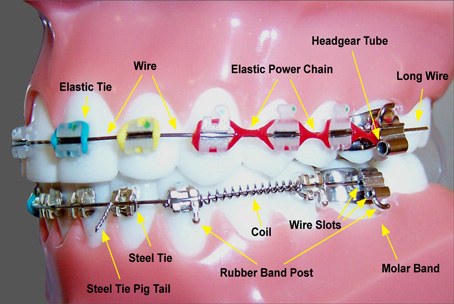
For some serious bite problems, braces are needed as part of treatment.īecause braces consist of brackets that are cemented to teeth and connected by wires that are tightened regularly by your orthodontist, a very custom treatment plan can be designed to address even very severe cases of overbite.ĭepending on the complexity and severity of the crossbite, braces treatment may include the following: Adult crossbites can develop and get worse over time, but they can still be addressed by orthodontics.īraces are effective in treating many cases of crossbite. In children, crossbites are easier to fix because the jaw is still growing.
Difficulty biting into food or chewing well, which increases the risk of digestive issues, diabetes, and heart problemsĮven small changes in the alignment of your teeth can increase your risk of oral health problems. Sleep apnea or snoring that disrupts sleep, which can increase the risk of other health issues, including heart disease or diabetes. Pain and muscle tension in other areas, including the shoulders and neck. TMJ or teeth grinding, leading to muscle pain and headaches. Tooth decay, gingivitis, and periodontitis. Wearing down of tooth enamel on one side, causing cracking or a higher risk of cavities. Lopsided growth of the jaw in children, leading to uneven pressure on the teeth, which can cause tooth decay and loss later in life. The jaw shifting to one side, causing muscle strain, chewing problems, and an uneven facial appearance. These are potential problems of untreated crossbites: A crossbite can hinder your mental health, making you feel insecure about your smile or speech in social or public settings. A crossbite can affect your daily life, affecting your speech and eating habits. A crossbite can put unnatural stress and wear on the jaw, causing muscle and structural problems. Teeth misalignment can result in tooth friction and wear on enamel, weakening tooth structure and increasing the risk of tooth damage and loss. This can make it difficult to clean in between the teeth and can create hidden “pockets” where problematic bacteria and food particles can accumulate, causing decay and gum problems. 
Malocclusions (including crossbite) can cause crowding and spacing issues.To understand the potential impact of a crossbite, consider the following: Some may feel self-conscious about their crossbite, but they don’t want to deal with having to wear braces. Teeth may have shifted with age, or after a tooth loss or injury.

Others may not even realize they have a crossbite. What Happens If You Don't Treat a Crossbite?įor those who have left a crossbite untreated since childhood, treatment may seem unnecessary, especially if it seems only the back (less visible) teeth are affected.






 0 kommentar(er)
0 kommentar(er)
